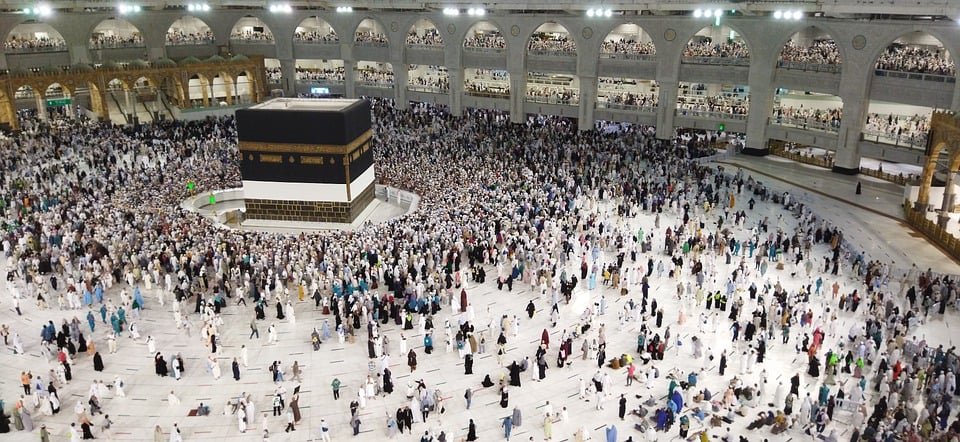The Sulah Hudaibiya Treaty is one of the most significant events in Islamic history, marking a turning point in the relationship between the Muslims of Medina and the Quraysh of Mecca. I think this treaty, signed in 628 CE, is often misunderstood, but its wisdom and long-term impact are undeniable. If you’re looking for a clear, well-researched guide on the Sulah Hudaibiya Treaty, you’re in the right place! In this article, I’ll break down its background, terms, and why it was a strategic masterpiece—helping you understand its true importance in Islamic history.
At Hajj2026.org, we’ve been helping travelers explore the sacred cities of Makkah and Madinah since 2016, and over these 9 years, we’ve gained deep insights into Islamic history and pilgrimage. I feel that our experience allows us to present the Sulah Hudaibiya Treaty in a way that’s both accurate and easy to grasp. Whether you’re preparing for Umrah, studying Islamic history, or just curious, we’ve got you covered with reliable, well-explained information. Let’s explore this pivotal moment together!
Sulah Hudaibiya Treaty History and Significance Explained
The Sulah Hudaibiya Treaty is one of the most pivotal moments in Islamic history. It shaped the future of Muslims in Arabia and demonstrated the Prophet Muhammad’s (PBUH) wisdom in diplomacy. Though it seemed like a setback at first, this treaty laid the foundation for Islam’s rapid growth. I think understanding its history helps us appreciate how patience and strategic thinking can lead to long-term success.
At Hajj2026.org, we’ve been helping travelers explore Makkah and Madinah since 2016. With nine years of experience, we connect pilgrims with trusted tour operators for Umrah and spiritual journeys. While we don’t directly provide Hajj or Umrah services, our expertise ensures a smooth and meaningful travel experience. Now, let’s explore the fascinating story behind the Sulah Hudaibiya Treaty.
The Background Leading to the Treaty
In the sixth year after Hijrah, Prophet Muhammad (PBUH) and his companions decided to perform Umrah in Makkah. They set out peacefully, dressed in Ihram, showing no intention of conflict. However, the Quraysh of Makkah refused to let them enter, fearing the growing influence of Islam. I feel this moment was a test of faith—would the Muslims react with anger or patience?
The Quraysh sent a delegation to stop the Muslims at Hudaibiya, a small village near Makkah. Negotiations began, but tensions ran high. The Prophet (PBUH) remained calm, emphasizing his desire for peace. His approach teaches us that sometimes, stepping back can lead to greater victories. The companions trusted his leadership, even when the terms seemed unfavorable.
The Terms of the Sulah Hudaibiya Treaty
The treaty had several key conditions. First, Muslims would return to Madinah without performing Umrah that year. Second, they could return the following year for three days only. Third, if any Makkan embraced Islam and fled to Madinah, they would be returned, but Muslims who left Islam for Quraysh would not be sent back. At first glance, these terms appeared one-sided.
However, the Prophet (PBUH) saw the bigger picture. The treaty stopped hostilities for ten years, giving Muslims time to strengthen their position. I think this shows how short-term sacrifices can bring long-term benefits. The companions were initially upset, but history proved the Prophet’s wisdom. Within two years, Islam spread rapidly, and the treaty’s conditions worked in favor of the Muslims.
Why the Treaty Was a Turning Point
Before the treaty, the Quraysh saw Muslims as a threat. The agreement forced them to recognize Islam as a legitimate entity. This opened doors for peaceful dialogue and conversions. Many Quraysh leaders, including Khalid ibn al-Walid and Amr ibn al-As, later embraced Islam. In my opinion, the treaty was a masterstroke in diplomacy.
Additionally, the ten-year truce allowed Muslims to focus on spreading Islam beyond Madinah. Tribes across Arabia began aligning with the Muslims, seeing their strength and fairness. The treaty didn’t just bring peace—it set the stage for the eventual conquest of Makkah without bloodshed.
Lessons We Can Learn Today
The Sulah Hudaibiya Treaty teaches us the power of patience and strategic compromise. The Prophet (PBUH) chose peace over war, even when his followers disagreed. His foresight turned a seeming defeat into a historic victory. I feel this lesson is timeless—whether in personal conflicts or global diplomacy, wisdom often lies in restraint.
Another lesson is trust in leadership. The companions had doubts, but they respected the Prophet’s decision. Their faith was rewarded when the treaty’s benefits became clear. Today, we can apply this by trusting just leaders and thinking long-term instead of seeking instant results.
How the Treaty Influenced Future Events
Within two years, the Quraysh violated the treaty by supporting an attack on a Muslim-allied tribe. This gave the Muslims a moral and legal right to respond. When they marched to Makkah, the city surrendered peacefully. The same leaders who once opposed Islam now accepted it. The treaty’s collapse, ironically, strengthened the Muslim position.
The peaceful conquest of Makkah became possible because of the groundwork laid at Hudaibiya. Without the treaty, Islam’s expansion might have been slower and bloodier. I think this shows how divine wisdom works in unexpected ways.
Visiting Hudaibiya Today
For those traveling to Makkah, Hudaibiya holds deep historical significance. Though it’s now part of modern-day Makkah, pilgrims can still reflect on the events that unfolded there. At Hajj2026.org, we help travelers explore these sacred sites with ease. Since 2016, we’ve connected thousands with trusted tour operators for a spiritually enriching journey.
Walking through Hudaibiya, one can almost feel the weight of history. The treaty reminds us that faith, patience, and wisdom can overcome even the toughest challenges. Whether you’re planning Umrah or simply studying Islamic history, Hudaibiya’s legacy is worth understanding.
Final Thoughts on the Sulah Hudaibiya Treaty
The Sulah Hudaibiya Treaty wasn’t just a temporary agreement—it was a turning point that changed the course of history. It proved that sometimes, the best victories come through patience and negotiation. The Prophet’s (PBUH) leadership during this event remains a guiding light for Muslims today.
If you’re inspired to visit these historic sites, Hajj2026.org is here to help. With nine years of experience, we ensure your journey to Makkah and Madinah is seamless and meaningful. Let the lessons of Hudaibiya remind us that true success often comes from wisdom, not just strength.

